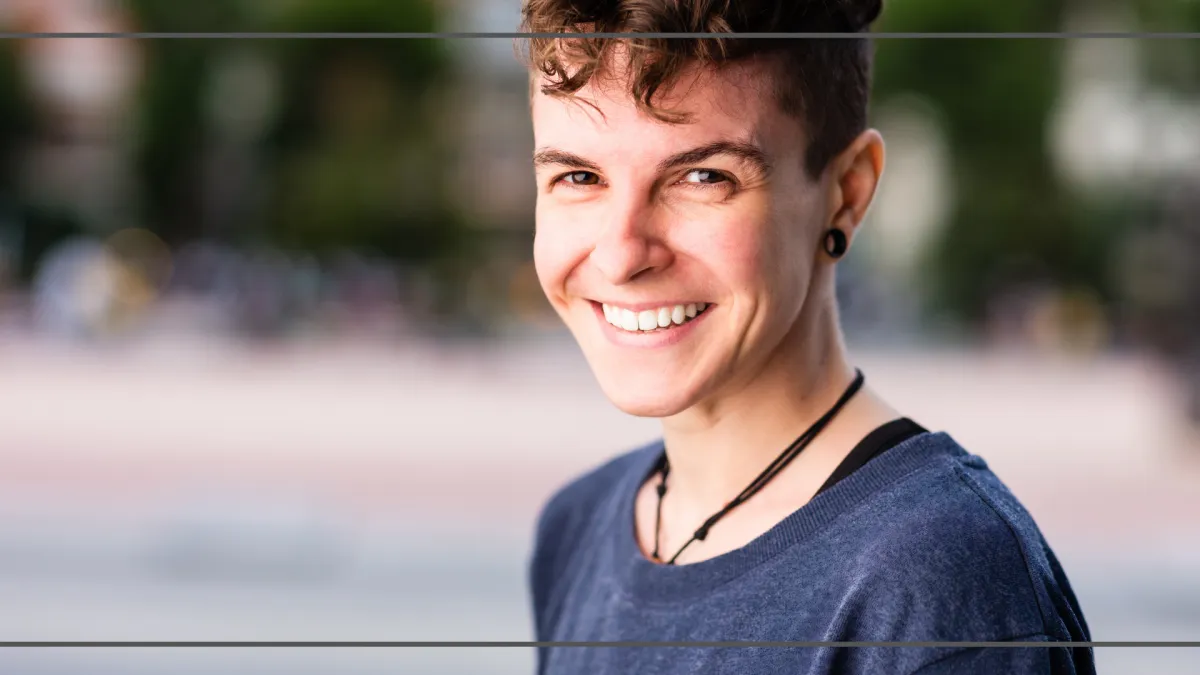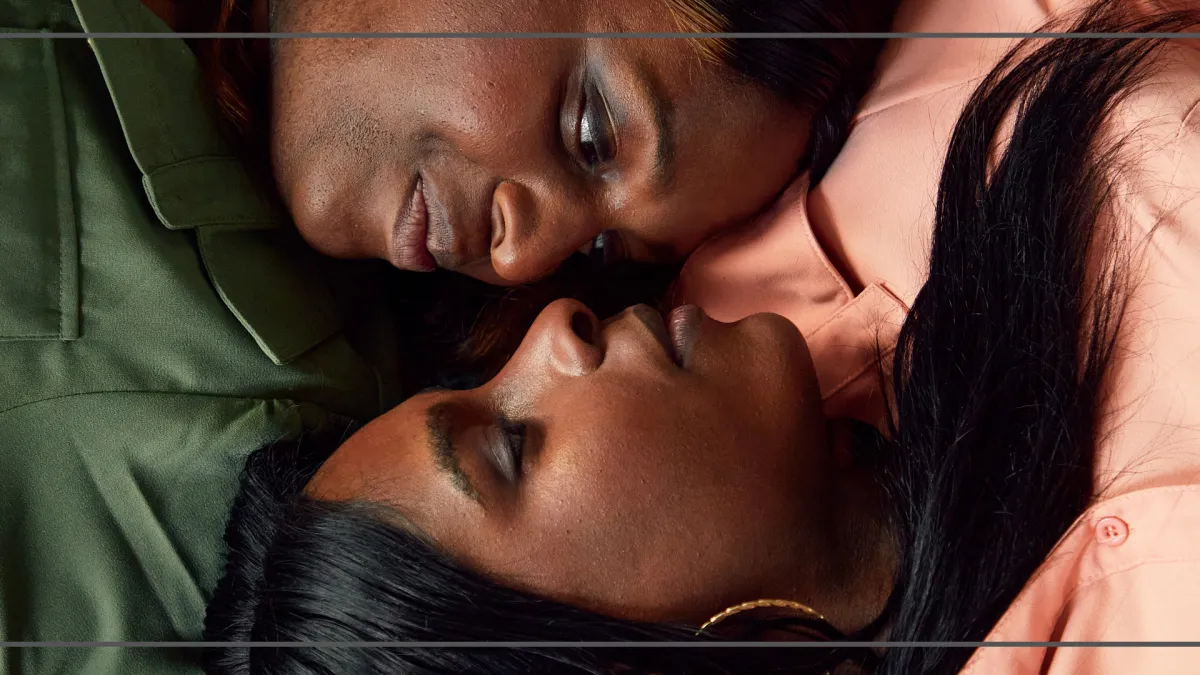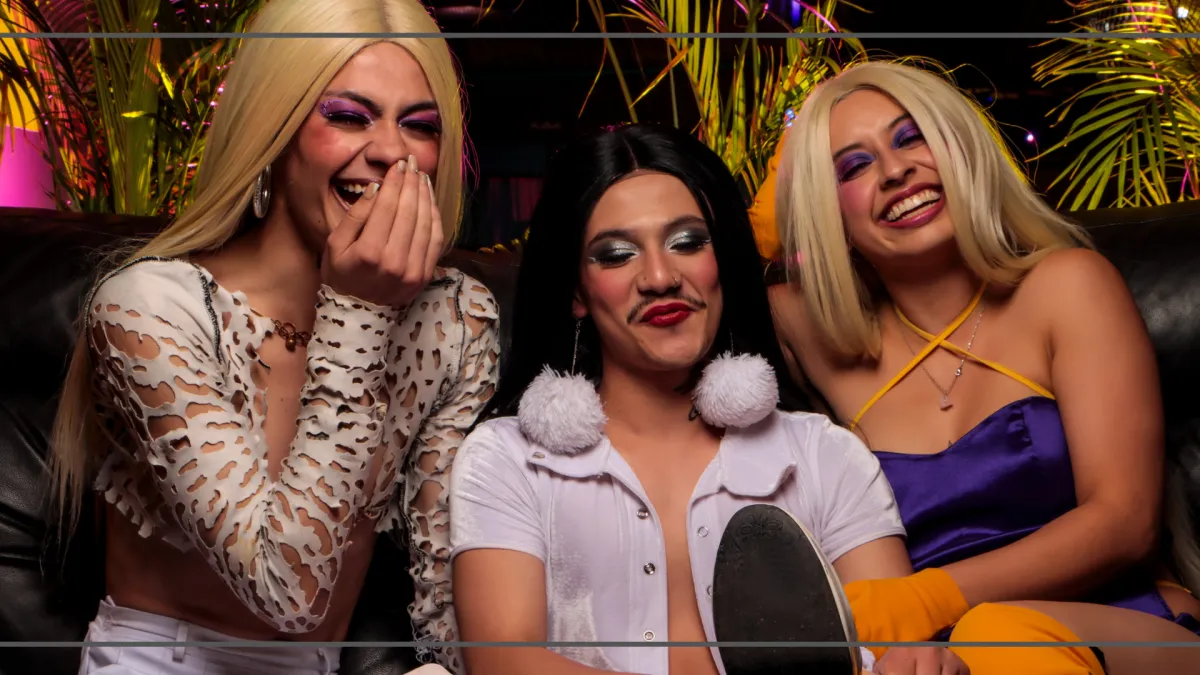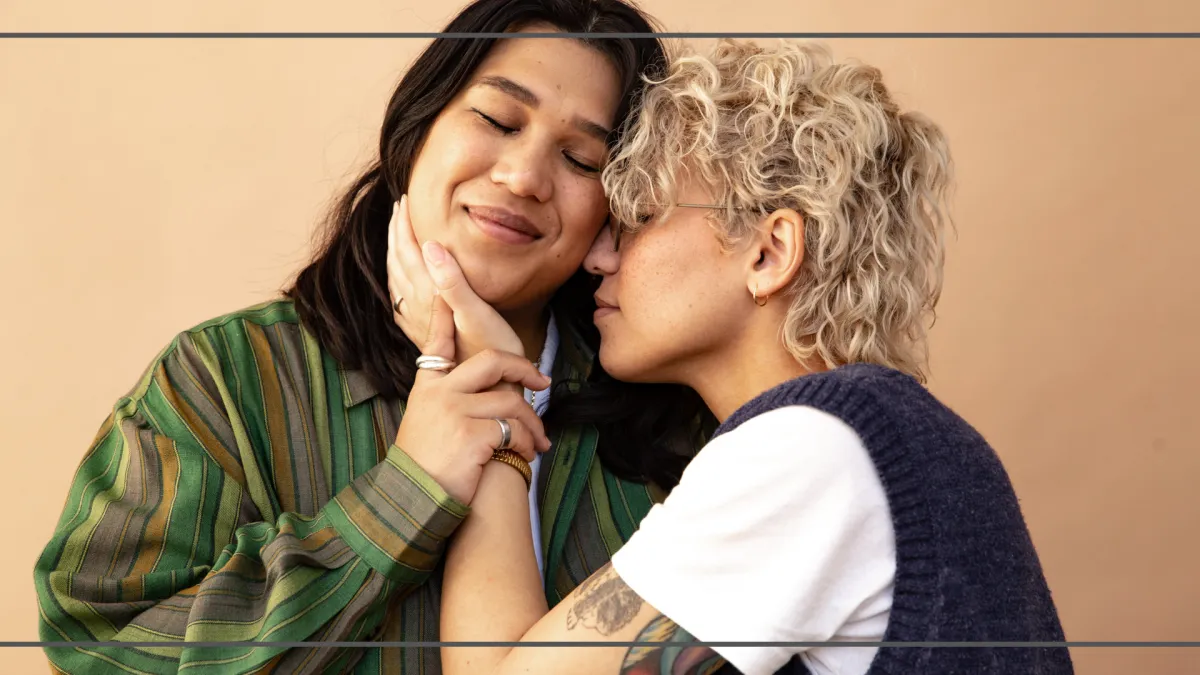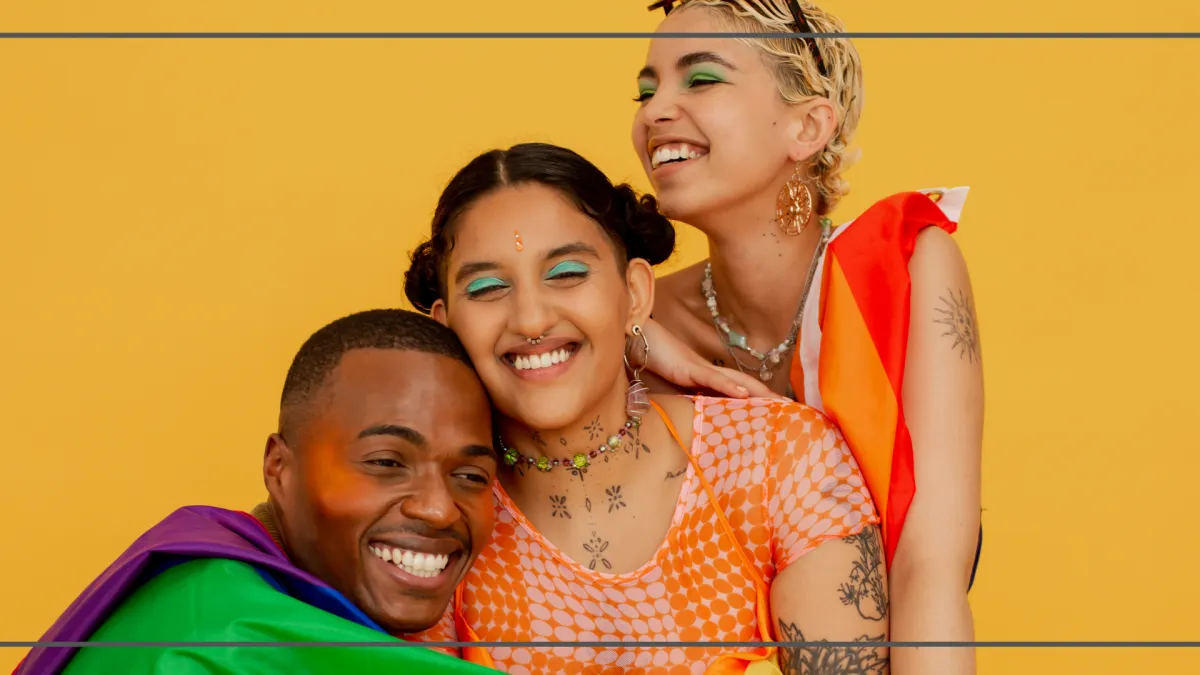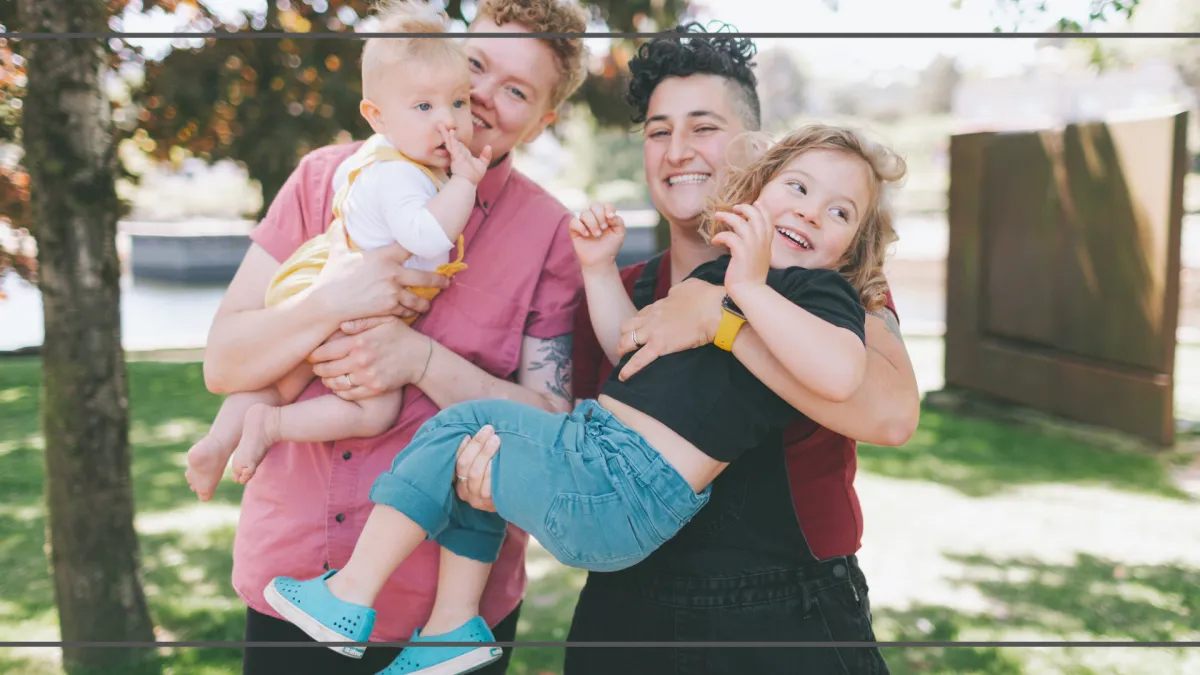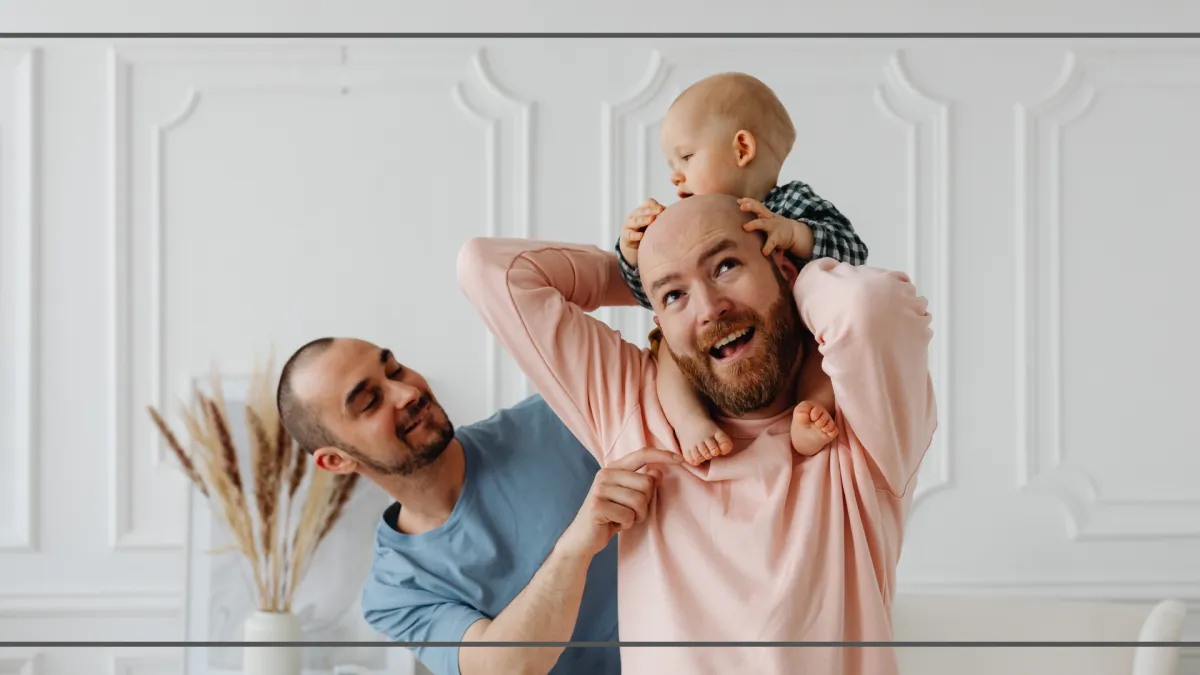Dear Past, Thanks for all the lessons.
Dear Future, I'm ready to kick ass.
Welcome to FlowArt Therapy, established in 2016 by Dr. Misty Gibson. Our practice is all about supporting neurodivergent and queer folks with a fresh, inclusive approach to mental health. Dr. Misty, with her extensive credentials (PhD, LMHC, LCPC, LCPAT, ATR-BC, CST, ACS, ATCS, NCC, BC-TMH), is a specialist in neurodivergent and queer concerns and an AASECT Certified Sex Therapist.
Our awesome team of therapists are trained and passionate about working with neurodivergent folx and queer folx, as well as people in open relationships, polyamorous dynamics, relationship anarchy, and the BDSM community. Under Dr. Misty’s expert guidance, we focus on providing affirming and culturally competent care for those who are often marginalized by traditional mental health services. At FlowArt, we celebrate your individuality and offer innovative, tailored care that respects and values your unique journey.

Listening to Your Body: The Interoceptive System
Listening to Your Body: The Interoceptive System
Today, we’re diving into an often overlooked but vital aspect of our sensory experience: the interoceptive system. Interoception is our ability to sense internal bodily states, such as hunger, thirst, and pain. This system plays a crucial role in maintaining overall health and well-being by helping us recognize and respond to our body's needs. However, for many neurodivergent individuals, interoceptive processing can present unique challenges. Let's explore how the interoceptive system works, the difficulties that can arise, and strategies to support interoceptive processing.
The Importance of the Interoceptive System
The interoceptive system is fundamental to our daily lives and overall well-being. It allows us to:
Detect Internal States: Recognizing hunger, thirst, pain, and other internal cues helps us meet our body's needs.
Regulate Emotions: Interoception is closely linked to emotional awareness and regulation, as physical sensations often accompany emotional experiences.
Maintain Homeostasis: By sensing and responding to internal signals, we can maintain a stable internal environment, essential for health and functioning.
Challenges in Interoceptive Processing
For many neurodivergent individuals, interoceptive processing can be a significant challenge. Here are some common issues:
Difficulty Recognizing Internal Signals: Struggling to identify feelings of hunger, thirst, or pain can lead to unmet needs and health issues.
Misinterpreting Bodily Signals: Confusing one internal state for another (e.g., anxiety mistaken for hunger) can affect emotional regulation and behavior.
Delayed Responses: A delay in recognizing and responding to internal signals can impact overall well-being and daily functioning.
Strategies for Supporting Interoceptive Processing
Supporting interoceptive processing involves teaching individuals to recognize and interpret bodily signals and creating supportive environments. Here are some strategies:
Teach Individuals to Recognize and Interpret Bodily Signals
Why It Helps: Understanding and correctly identifying internal states can lead to better self-care and emotional regulation.
How to Do It: Use activities and discussions to help individuals become more aware of their bodily sensations. Encourage them to describe what they feel and associate these sensations with specific needs (e.g., “I feel a dry mouth, so I am thirsty”).
Use Visual Aids to Remind Them of Bodily Needs
Why It Helps: Visual reminders can prompt individuals to check in with their bodies and address needs they might otherwise overlook.
How to Do It: Create charts, schedules, or visual prompts that remind individuals to drink water, eat meals, take bathroom breaks, and rest. Use symbols and pictures for clarity.
Incorporate Mindfulness and Relaxation Techniques
Why It Helps: Mindfulness practices can enhance body awareness and help individuals stay tuned into their internal states.
How to Do It: Introduce mindfulness exercises such as deep breathing, body scans, and guided imagery. Encourage regular practice to build interoceptive awareness and reduce stress.
Additional Tips for Supporting Interoceptive Processing
Consistent Routines: Establish consistent daily routines to help individuals predict and manage their bodily needs more effectively.
Positive Reinforcement: Use positive reinforcement to encourage individuals to recognize and respond to their interoceptive cues.
Professional Guidance: Work with occupational therapists or psychologists to develop personalized strategies and interventions tailored to individual needs.
Conclusion
Understanding the interoceptive system and its complexities is vital for creating supportive environments for those with interoceptive processing challenges. By teaching individuals to recognize bodily signals, using visual aids, and incorporating mindfulness techniques, we can help make the world of internal body awareness more accessible and manageable for everyone.
Remember, every step towards understanding and supporting sensory processing is a step towards inclusivity and better quality of life. Stay tuned for more insights and strategies to support our neurodivergent community! Thank you for joining us on our sensory experiences series! We hope you liked learning with us, and we'd love to hear your feedback!
References
Frontiers. (n.d.). Evaluating Sensory Integration/Sensory Processing Treatment: Issues and Analysis. Retrieved from Frontiers
MDPI. (n.d.). Sensory Processing Impairments in Children with Developmental Coordination Disorder. Retrieved from MDPI
Research AOTA. (n.d.). Occupational Therapy Interventions for Children and Youth with Sensory Processing Challenges. Retrieved from Research AOTA
About Dr. Misty Gibson

Dr. Misty began FlowArt Therapy as a solo venture in 2016. As she worked alone, she realized that the unique population she serves needed more specialized mental health care than she could provide by herself. In 2020, Dr. Misty decided to expand into a group collective, inviting interns and associates to join her in practicing clinical mental health and sex therapy for neurodivergent, queer, polyamorous, and kinky individuals.
Over the years, Dr. Misty has trained many students, interns, and associates in competent, compassionate, and consent-based therapy, using a relational-cultural approach. To be a part of FlowArt Therapy, it’s essential that all therapists are sex-positive, neurodivergent-informed, and committed to continuing their education in these areas. Dr. Misty has transformed her practice into a collaborative teaching space, where she closely models and trains therapists in these focused methods.
Together with her colleague and business partner, Michell Brockman, Dr. Misty is expanding the reach of FlowArt. They’re working on bringing on-demand learning opportunities to the public and to clinical mental health practitioners about the intersection of neurodivergence and queer identities through FlowArt Academy, The Sparkle Newsletter, The Sparkle App (coming soon), and the Neurosparkly podcast.
What's On
Check out the things we are working on within FlowArt and beyond!
Check Out Our News!
Our newsletter, The Sparkle, is chock full of great articles and insights focused on neurodivergence, queer identity, and other amazing content. We often have cool freebies included too, so don't miss out!
FlowArt Therapy
Dr. Misty's group practice that inspired it all, is always taking new clients! We focus on queer issues and neurodivergent humans, particularly adults who are newly exploring their neurodivergent identities, as well as polyamorous and kinky folx! Let's get you started on therapy!
On Demand Courses
The courses on FlowArt Academy are focused on topics for neurodivergent and queer folx and the people who love them. We provide great learning to bring awareness and support for neurodivergent/queer/adjacent identities.
Listen to Our Podcast!
Our podcast, Neurosparkly, is funny, insightful, and genuine, and we'd love it if you check it out! Neurosparkly publishes a new episode every week where we share our thoughts and have great conversations & guests!
FlowArt's The Sparkle App
We’re excited to be developing The Sparkle App, bringing you daily content on courses and programs focused on neurodivergence and queer identity, as well as bespoke programs specific to your learning interests. Stay tuned for an amazing experience designed just for you!
If you are in crisis, please do not use this site. For more crisis services and information about police intervention, please click the button below:
If you or someone you know is in immediate, life-threatening danger and decide to call 911, please be aware that police are not equipped to offer mental health support and may even pose danger to People of Color, Neurodivergent people and Disabled people.
Please ALSO reach out to community leaders, neighbors, friends, and family to be present if you are calling the police.
Please note that some crisis line workers are mandated to report calls regarding suicide to the police. If this is a concern, we encourage you to first ask about their reporting policies before sharing.
© 2024 FlowArt
The information contained in this Web site and from it's resources is for general guidance on matters of interest only. The information contained in this website is for general information purposes only. The information contained in or through our website is not intended to provide medical advice and is not intended to be a substitute for professional medical advice, diagnosis or treatment that can be provided by your own Medical Provider (including doctor/physician, nurse, physician’s assistant, or any other health professional), Mental Health Provider (including psychiatrist, psychologist, therapist, counselor, or social worker), or member of the clergy. The website and its education resources are not be used as a substitute for consultation with a professional psychologist or other professional health or medical provider. Therefore, do not disregard or delay seeking professional medical, mental health or religious advice because of information you have read on this website or received from us. Do not stop taking any medications without speaking to your own Medical Provider or Mental Health Provider. If you have or suspect that you have a medical or mental health problem, contact your own Medical Provider or Mental Health Provider promptly.




